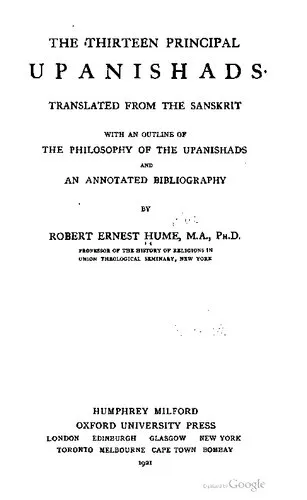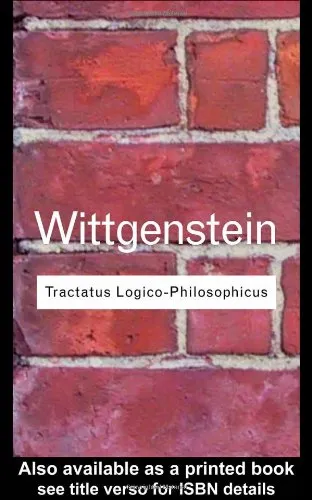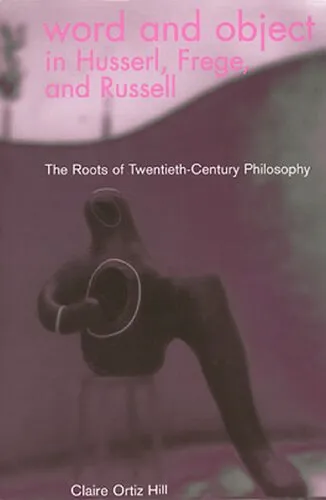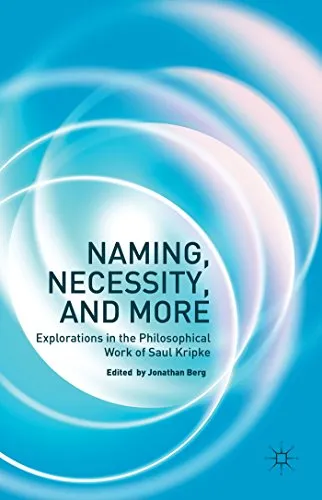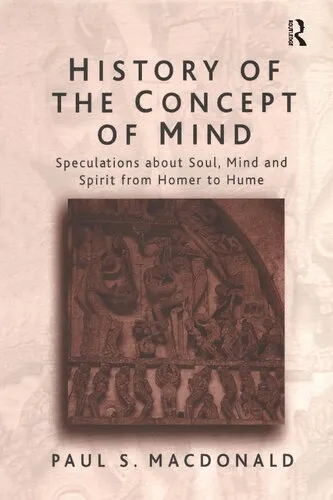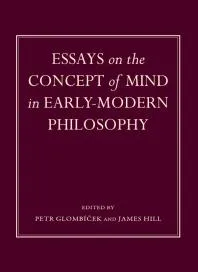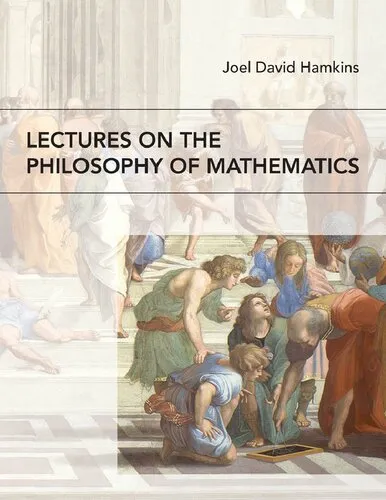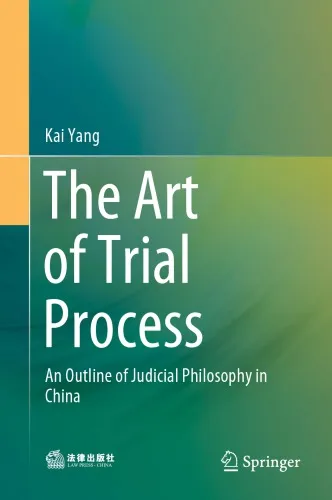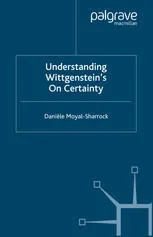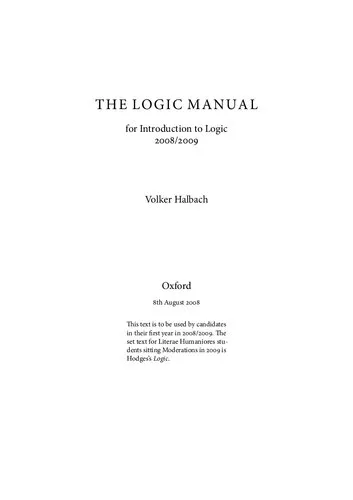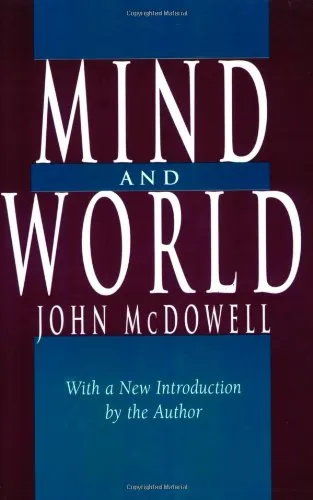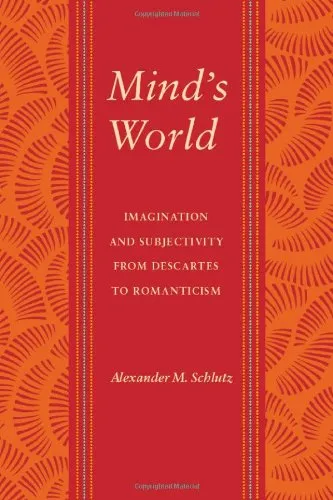The Thirteen Principal Upanishads, with an Outline of the Philosophy of the Upanishads
4.0
بر اساس نظر کاربران

شما میتونید سوالاتتون در باره کتاب رو از هوش مصنوعیش بعد از ورود بپرسید
هر دانلود یا پرسش از هوش مصنوعی 2 امتیاز لازم دارد، برای بدست آوردن امتیاز رایگان، به صفحه ی راهنمای امتیازات سر بزنید و یک سری کار ارزشمند انجام بدینکتاب های مرتبط:
معرفی کتاب
کتاب 'The Thirteen Principal Upanishads, with an Outline of the Philosophy of the Upanishads' یکی از منابع اساسی برای مطالعه فلسفه هندی و درک متفاوتی از متون باستانی هند است. نوشته این اثر به وسیله رابرت ارنست هیوم، این کتاب به بررسی و تحلیل عمیق سیزده اوپانیشاد برجسته میپردازد و اهداف فلسفی و معنوی این نوشتهها را توضیح میدهد.
خلاصهای از کتاب
این اثر در واقع ترجمه و تحلیل سیزده اوپانیشاد اصلی است که به بررسی موضوعات عمیقی چون آتمن (نفس) و برهمن (واقعیت مطلق) میپردازد. هیوم در این کتاب تلاش کرده تا از طریق تحلیل جزئیات ساختار اوپانیشادها، به فهم دقیقتری از فلسفه اوپانیشادها دست یابد. وی همچنین مفاهیمی چون کارما، سمسارا، و نجات (moksha) را توضیح میدهد تا خوانندگان به طور کامل فلسفه پشت این متون را درک کنند.
نکات کلیدی
- ارتباط میان آتمن و برهمن به عنوان محور اصلی بحثها.
- تحلیلی از مفهوم رستگاری از منظر اوپانیشادها.
- تأکید بر مستندسازی و تحلیل دقیق از متون اوپانیشادی.
- نقش و اهمیت مدیتیشن و یوگا در فهم فلسفه اوپانیشادها.
نقلقولهای معروف از کتاب
"آنهچه که فراسوی تمامی ذهنها و درکهای انسانی قرار دارد، همانا خود اوست؛ برهمن در اوپانیشادها همانجا است."
"عدم دانش، تنها مانع بزرگی است که میان انسان و آگاهی مطلق قرار دارد."
چرا این کتاب مهم است
این کتاب به دلیل ارائه ترجمه و تفسیر روشن از اوپانیشادها، منبعی ارزشمند برای محققان و علاقهمندان به فلسفه هندی است. رابرت ارنست هیوم توانسته با تحلیل بینظیر خود پل مستقیمی بین فرهنگ غرب و فلسفه شرقی بزند، که این امر باعث شده تا این اثر، درسی از خرد باستانی برای جهان مدرن باشد. این کتاب همچنین به عنوان یک مرجع برای دانشجویانی که به دنبال درک عمیقتر از مفاهیم معنوی و فلسفی شرقی هستند، اهمیت ویژهای دارد.
The Thirteen Principal Upanishads, with an Outline of the Philosophy of the Upanishads, is a profound exploration of classical Indian philosophy and spirituality, encapsulating the essence of the Upanishadic wisdom that forms the core of Hindu thought. Authored by Robert Ernest Hume, this book serves as a comprehensive guide to one of the most significant collections of religious texts, offering insights into the metaphysical enigmas and the spiritual ethos of ancient India.
Detailed Summary of the Book
The book meticulously translates and interprets the thirteen major Upanishads, which are considered the philosophical bedrock of Hinduism. These texts delve into the abstract realms of the ultimate reality (Brahman), the concept of the self (Atman), and the intricate relationship between both. Each Upanishad is presented with detailed commentary, providing readers with an understanding of the historical context, philosophical dilemmas, and spiritual teachings intricately woven into the texts. Through its translations, the book bridges the cultural and linguistic barriers, offering contemporary audiences access to these ancient spiritual discourses.
Hume's outline on the philosophy of the Upanishads serves as an invaluable companion to the translations, where he systematically presents the core ideas, themes, and motifs found across the texts. His interpretation emphasizes the universal quest for truth and the pursuit of knowledge, making the book not only a scholarly translation but also a philosophical beacon guiding seekers and scholars alike.
Key Takeaways
- The Upanishads encapsulate the spiritual and philosophical ideas that challenge the dualistic perception of reality.
- Core concepts include the ultimate reality (Brahman), the self or soul (Atman), and Moksha or liberation from the cycle of rebirth.
- The Upanishads propose meditation and self-realization as pathways to understanding the unity of Atman and Brahman.
- Hume's work highlights the enduring relevance of Upanishadic thought in contemporary philosophical and spiritual discourse.
Famous Quotes from the Book
"As a person in the armed forces, who has taken off his uniform, is untouched by the snares of job and rank and Ivy League, and is solely one with his purpose, so is the self, when once freed from the body."
"When all the chapters are compiled together — birth and reincarnation, dream and sleep, knowledge and ignorance, perceivable world and ultimate reality — what emerges is the unchanging truth to compel the depths of the soul."
Why This Book Matters
The Thirteen Principal Upanishads holds a pivotal place in the study of Eastern philosophy and spirituality. Hume’s translation provides a rare synthesis of philological expertise and philosophical insight, opening the doors to an integrated understanding of the Upanishads. By presenting these texts in a manner that is both faithful to the original and accessible to the modern reader, the book serves as an indispensable tool for scholars, practitioners of spirituality, and anyone intrigued by the philosophical traditions of ancient India.
The Upanishads continue to influence a broad spectrum of philosophical inquiry and spiritual disciplines worldwide. Their teachings transcend cultural and temporal boundaries, offering insights into the nature of existence and the path to spiritual enlightenment. In an age where these inquiries are ever pertinent, Hume’s book stands as a testament to the timeless relevance and profound wisdom of the Upanishads.
In summary, 'The Thirteen Principal Upanishads, with an Outline of the Philosophy of the Upanishads' is more than a collection of ancient texts; it is a gateway to understanding the spiritual heritage of humanity. It invites readers on a journey of self-inquiry and discovery, making it an essential read for those seeking to unravel the mysteries of the self and the universe.
دانلود رایگان مستقیم
شما میتونید سوالاتتون در باره کتاب رو از هوش مصنوعیش بعد از ورود بپرسید
دسترسی به کتابها از طریق پلتفرمهای قانونی و کتابخانههای عمومی نه تنها از حقوق نویسندگان و ناشران حمایت میکند، بلکه به پایداری فرهنگ کتابخوانی نیز کمک میرساند. پیش از دانلود، لحظهای به بررسی این گزینهها فکر کنید.
این کتاب رو در پلتفرم های دیگه ببینید
WorldCat به شما کمک میکنه تا کتاب ها رو در کتابخانه های سراسر دنیا پیدا کنید
امتیازها، نظرات تخصصی و صحبت ها درباره کتاب را در Goodreads ببینید
کتابهای کمیاب یا دست دوم را در AbeBooks پیدا کنید و بخرید
1533
بازدید4.0
امتیاز0
نظر98%
رضایتنظرات:
4.0
بر اساس 0 نظر کاربران
Questions & Answers
Ask questions about this book or help others by answering
No questions yet. Be the first to ask!
